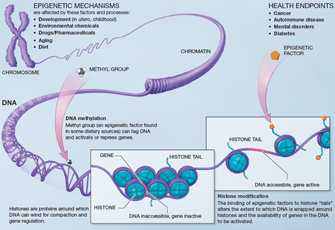Intelligence has been defined in many different ways including, but not limited to, abstract thought, understanding, self-awareness, communication, reasoning, learning, having emotional knowledge, retaining, planning, and problem solving.
 The approach to understanding intelligence with the most supporters and published research over the longest period of time is based on psychometric testing. It is also by far the most widely used in practical settings. Intelligence quotient (IQ) tests include the Stanford-Binet, Raven's Progressive Matrices, the Wechsler Adult Intelligence Scale and the Kaufman Assessment Battery for Children.
The approach to understanding intelligence with the most supporters and published research over the longest period of time is based on psychometric testing. It is also by far the most widely used in practical settings. Intelligence quotient (IQ) tests include the Stanford-Binet, Raven's Progressive Matrices, the Wechsler Adult Intelligence Scale and the Kaufman Assessment Battery for Children.
There are many different kinds of IQ tests using a wide variety of test tasks. Some tests consist of a single type of task, others rely on a broad collection of tasks with different contents (visual-spatial, verbal, numerical) and asking for different cognitive processes (e.g., reasoning, memory, rapid decisions, visual comparisons, spatial imagery, reading, and retrieval of general knowledge). The ancestors of modern humans evolved large and complex brains exhibiting an ever-increasing intelligence through a long evolutionary process. Different explanations have been proposed.
Professor Gerald Crabtree, who heads a genetics laboratory at Stanford University in California, has put forward the iconoclastic idea that rather than getting cleverer, human intelligence peaked several thousand years ago and from then on there has been a slow decline in our intellectual and emotional abilities. Although we are now surrounded by the technological and medical benefits of a scientific revolution, these have masked an underlying decline in brain power which is set to continue into the future leading to the ultimate dumbing-down of the human species, Professor Crabtree said.
His argument is based on the fact that for more than 99 per cent of human evolutionary history, we have lived as hunter-gatherer communities surviving on our wits, leading to big-brained humans. Since the invention of agriculture and cities, however, natural selection on our intellect has effective stopped and mutations have accumulated in the critical “intelligence” genes.
 New developments in genetics, anthropology, and neurobiology that make a clear prediction that our intellectual and emotional abilities are genetically surprisingly fragile. A comparison of the genomes of parents and children has revealed that on average there are between 25 and 65 new mutations occurring in the DNA of each generation. Professor Crabtree says that this analysis predicts about 5,000 new mutations in the past 120 generations, which covers a span of about 3,000 years.
Some of these mutations, he suggests, will occur within the 2,000 to 5,000 genes that are involved in human intellectual ability, for instance by building and mapping the billions of nerve cells of the brain or producing the dozens of chemical neurotransmitters that control the junctions between these brain cells.
New developments in genetics, anthropology, and neurobiology that make a clear prediction that our intellectual and emotional abilities are genetically surprisingly fragile. A comparison of the genomes of parents and children has revealed that on average there are between 25 and 65 new mutations occurring in the DNA of each generation. Professor Crabtree says that this analysis predicts about 5,000 new mutations in the past 120 generations, which covers a span of about 3,000 years.
Some of these mutations, he suggests, will occur within the 2,000 to 5,000 genes that are involved in human intellectual ability, for instance by building and mapping the billions of nerve cells of the brain or producing the dozens of chemical neurotransmitters that control the junctions between these brain cells.Life as a hunter-gatherer was probably more intellectually demanding than widely supposed, he says. “A hunter-gatherer who did not correctly conceive a solution to providing food or shelter probably died, along with his or her progeny, whereas a modern Wall Street executive that made a similar conceptual mistake would receive a substantial bonus and be a more attractive mate,” Professor Crabtree says.
According to Thomas Teasdale and David Owen who took advantage of the Danish tradition of testing the intelligence of all 18-year-old men being considered for conscription into military service. Young men assessed for military service in Denmark in 1999 performed significantly better, by about 2 IQ points, than the 33,000 tested in 1988. However, the 23,000 men tested in 2003/2004 performed significantly worse than the 1998 group, at a level almost equivalent to the 1988 cohort. This apparent decline in average intelligence matches a similar observation made in Norway among their conscripts.
Despite Professor Crabtrees claim of decline in evolutionary intelligence, there seems to be an increase in intelligence test scores measured in many parts of the world from roughly 1930 to the present day. James Flynn is a political scientist from New Zealand, who put forth an observation that
intelligence is increasing due to the intellectually stimulating environment A.K.A. The Flynn Effect. Its hard to ignore both arguments, as both claims come from either a genetic or environmental view point.
Intelligence appears to be at least partly dependent on brain structure and the genes shaping brain development, it has been proposed that genetic engineering could be used to enhance the intelligence, a process sometimes called biological uplift in science fiction.
Experiments on mice have demonstrated superior ability in learning and memory in various behavioral tasks for the genetic offspring. Mans ability to revolutionize new processes in the field of neurobiology or Artificial intelligence, argues against the devolving theory. Yet the same argument of genes could relate to the average man who spends most of his day in non intellectual pursuits are recorded in his epignome. The epigenome is involved in regulation of gene expression, development, tissue differentiation, and suppression of transposable elements.The idea being that through out ones life you are transferring your physical condition into your genes which may be passed on. At this point in time there are no clear signs that indicate the conclusion of which way the intelligence is going or if man is evolving in general. However environmental issues and technological progress may radically change us. In the end I hope the next evolutionary step is a long way from now as I prefer to stay the same condition as I was intended...




No comments:
Post a Comment